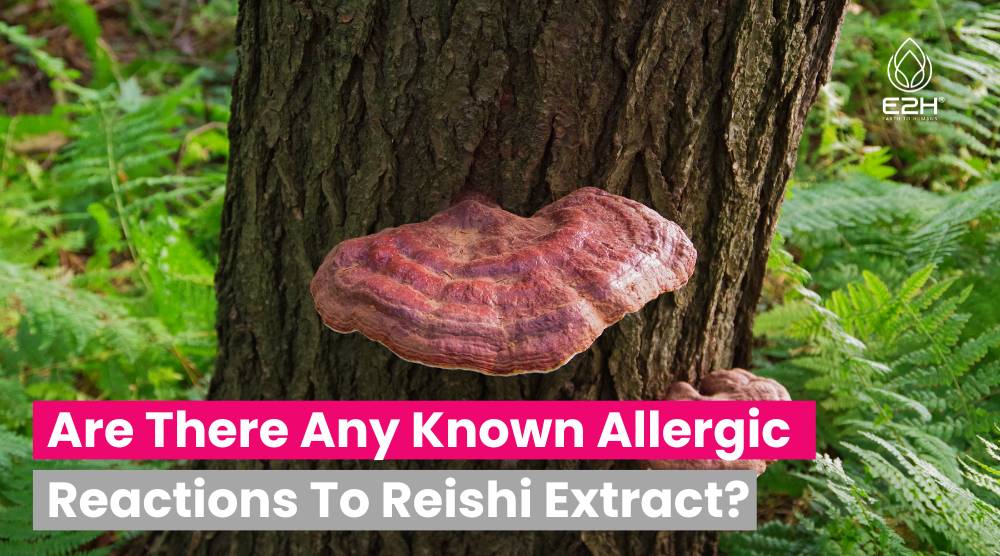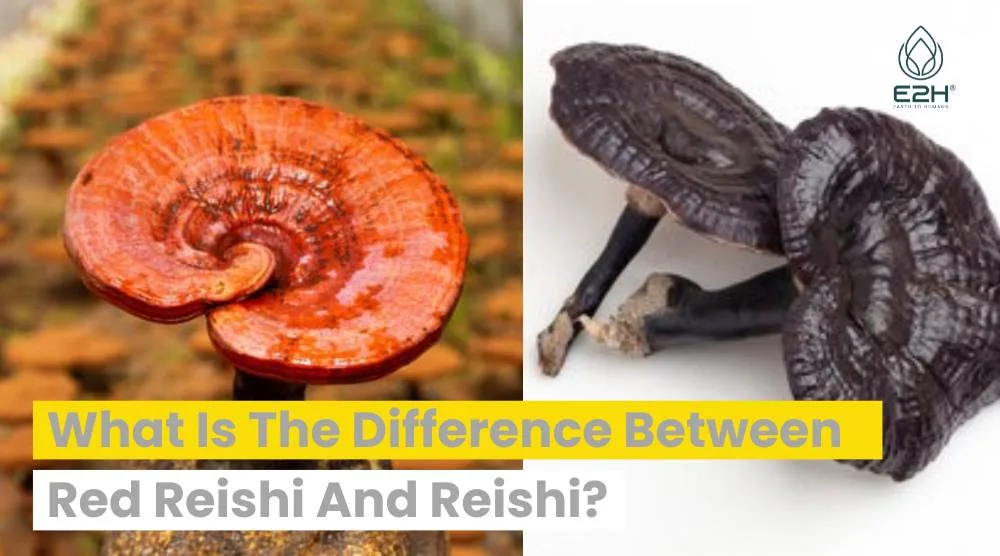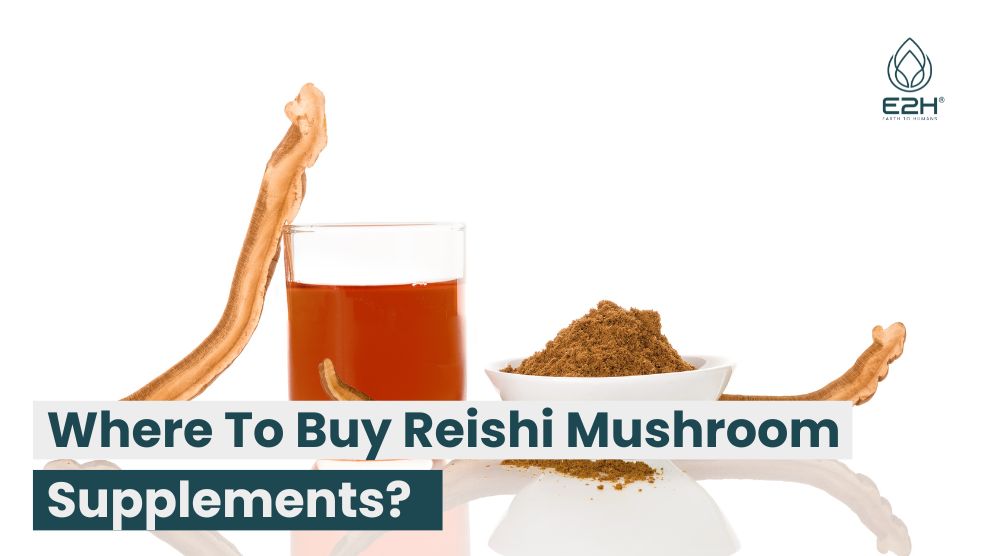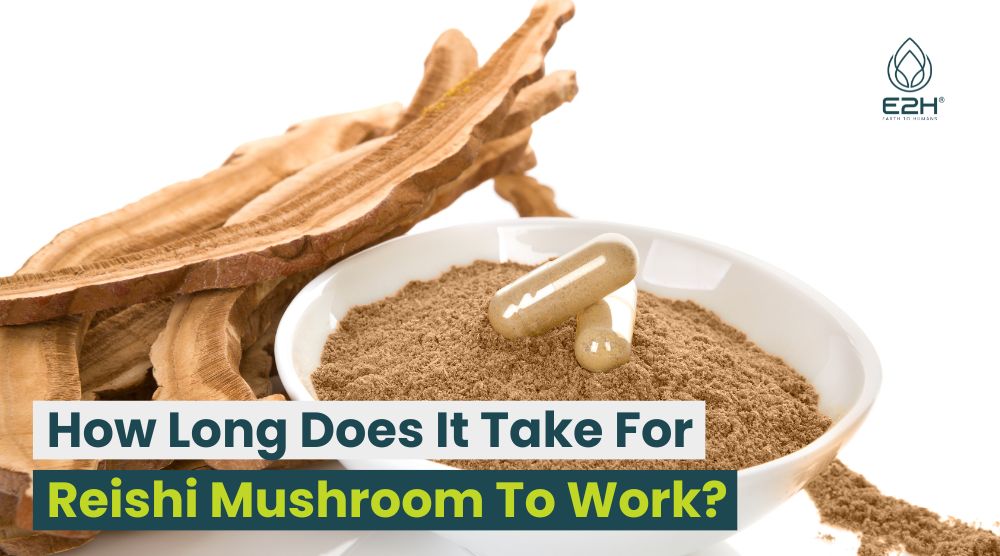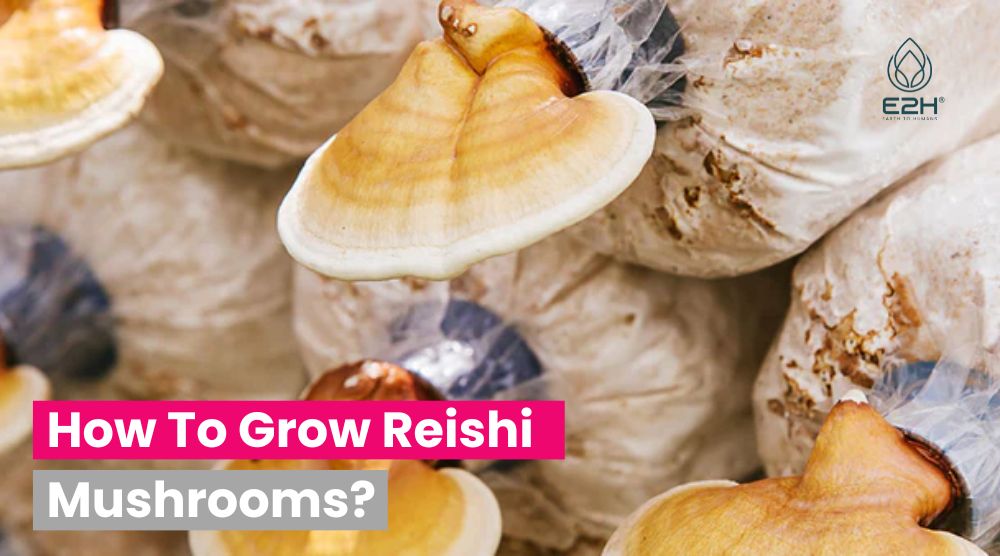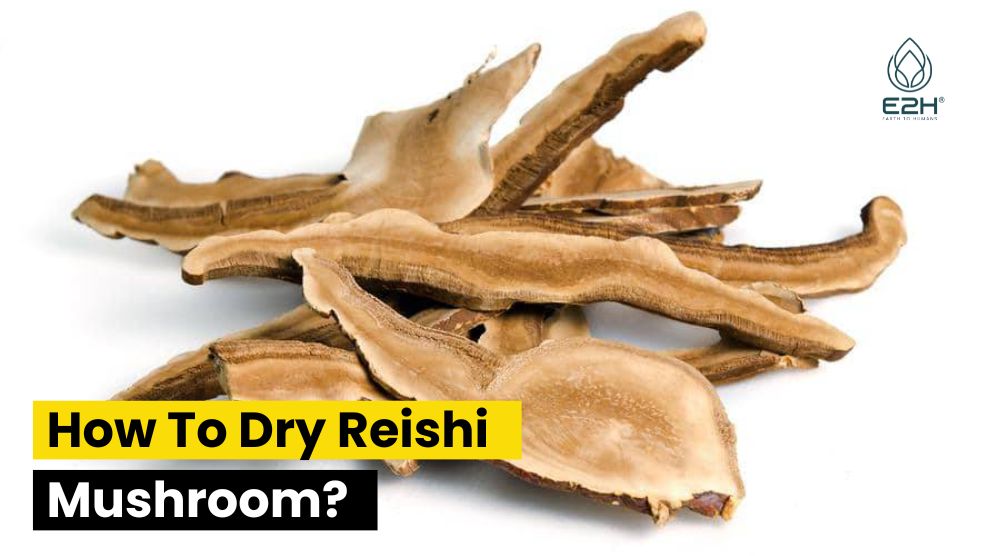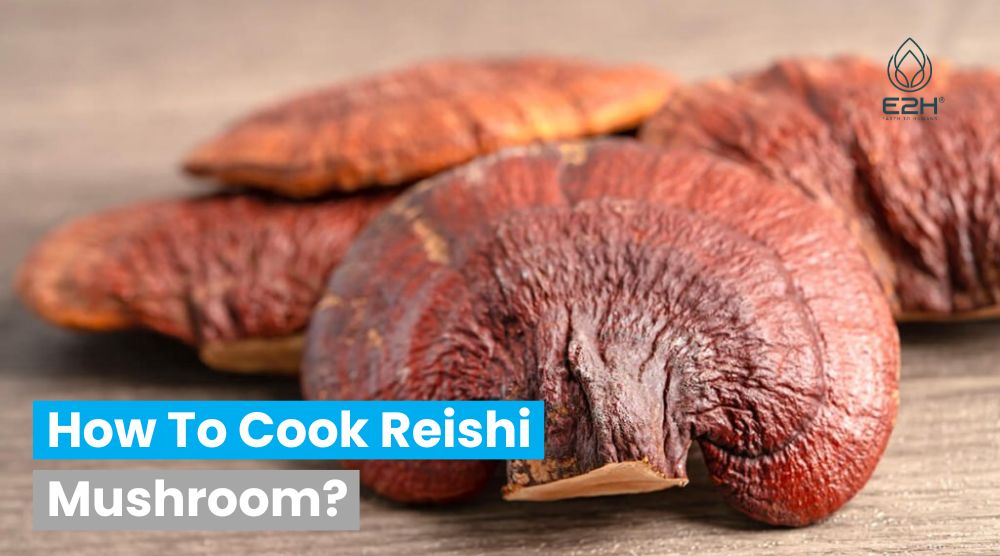Allergic Reactions To Reishi Extract: Yes, some people may experience allergic reactions to Reishi extract, such as skin rashes or difficulty breathing.
To ensure your safety, it’s crucial to understand these potential reactions. Let’s explore the facts about Reishi extract allergies and how to use it safely for overall well-being.
What Are The Potential Allergic Reactions To Reishi Extract?
Potential allergic reactions to Reishi extract may include skin rashes, itching, or swelling. Respiratory symptoms such as shortness of breath and wheezing can also occur. Gastrointestinal issues like nausea or abdominal pain may manifest.
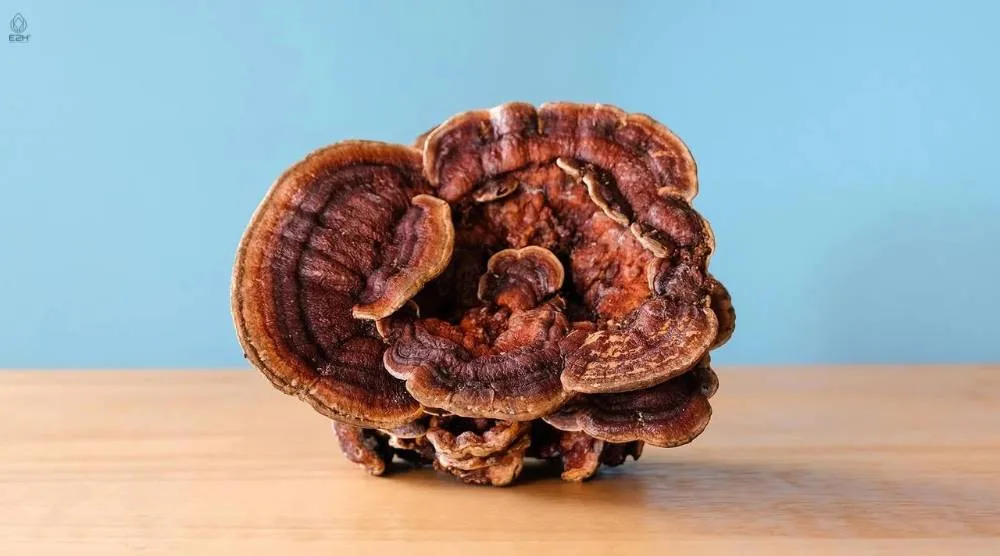
In rare cases, anaphylaxis, a severe allergic reaction, can occur, leading to a rapid and potentially life-threatening response. It’s crucial to be vigilant for these signs, especially if you have a history of allergies. If any adverse reactions occur, seeking medical attention promptly is essential.
Understanding the potential allergic responses to Reishi extract allows for informed and safe consumption, promoting overall well-being.
Can Reishi Extract Cause Any Adverse Effects In Certain Individuals?
Reishi extract may cause adverse effects in certain individuals. Common side side effects of reishi may include mild digestive issues, such as upset stomach or diarrhea. Some individuals may experience allergic reactions, presenting as skin rashes or respiratory symptoms. It’s crucial for those with pre-existing allergies or sensitivities to exercise caution.
Additionally, consulting with a healthcare professional before incorporating Reishi extract into your routine is advisable, especially if you are on medication or have underlying health conditions. Being aware of potential adverse effects allows for a cautious and informed approach to the use of Reishi extract for overall well-being.
Are There Documented Cases Of Allergic Responses To Reishi Mushroom Products?
Yes, there are documented cases of allergic responses to Reishi mushroom products. Individuals have reported skin reactions like rashes and itching, as well as respiratory symptoms such as difficulty breathing.
While these cases are relatively rare, it emphasizes the importance of awareness and monitoring for potential allergic reactions when using Reishi mushroom products. If any adverse responses occur, seeking medical advice promptly is crucial for a proper evaluation and guidance.
Understanding documented cases ensures a cautious approach to incorporating Reishi mushroom extracts and products into one’s health regimen for overall well-being.
What Symptoms Might Indicate An Allergic Reaction To Reishi Mushroom Extract?
Symptoms indicating an allergic reaction to taking Reishi mushroom extract may include skin issues like rashes, itching, or swelling. Respiratory symptoms such as difficulty breathing, wheezing, or coughing may also manifest. Gastrointestinal symptoms, like nausea or abdominal pain, can occur.
In severe cases, anaphylaxis may lead to a rapid and serious response. Recognizing these symptoms is vital, especially for individuals with known allergies.
If any of these signs appear after consuming Reishi mushroom extract, seeking immediate medical attention is crucial for proper evaluation and management, ensuring a safe and informed approach to its usage for overall well-being.
Has There Been Research On The Safety Of Reishi Extract In Relation To Allergies?
Yes, research has been conducted on the safety of Reishi extract concerning allergies. While Reishi is generally considered safe, studies highlight the potential for allergic reactions in certain individuals. It’s crucial to note that individual responses vary, and consulting existing research or healthcare professionals for personalized advice is recommended.
Staying informed about the outcomes of such research ensures a cautious and evidence-based approach to incorporating Reishi extract into health routines, particularly for those concerned about allergic reactions. This knowledge promotes a balanced perspective on the safety of Reishi extract in relation to allergies for overall well-being.
Are Allergic Reactions To Reishi Extract Common Or Rare?
Allergic reactions to Reishi extract are rare, occurring in a small percentage of individuals. While Reishi is generally considered safe, it’s essential to be aware of the possibility of allergic responses. Adverse reactions are more commonly associated with specific sensitivities or pre-existing allergies.
Nonetheless, anyone considering the use of Reishi extract should remain vigilant and seek medical advice if they observe any unusual symptoms. This understanding ensures a balanced perspective on the rarity of allergic reactions, allowing individuals to make informed decisions regarding the incorporation of Reishi extract into their health regimens for overall well-being.
Can Individuals With Known Allergies Safely Consume Reishi Extract?
Individuals with known allergies should approach the consumption of Reishi extract with caution. While Reishi is generally well-tolerated, there’s a potential for allergic reactions. It’s advisable for those with allergies to consult healthcare professionals before incorporating Reishi extract into their routine.
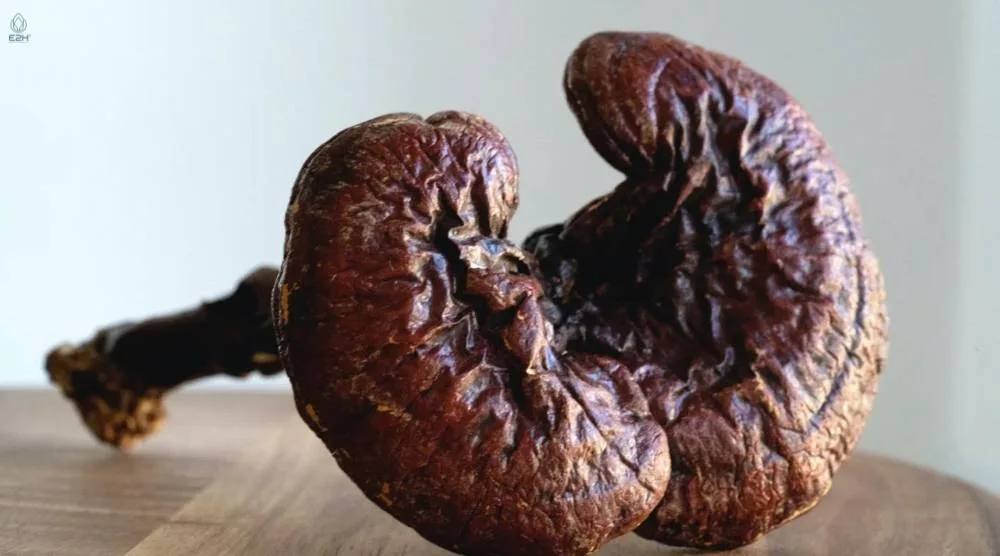
Monitoring for any signs of adverse reactions is crucial. This cautious approach ensures that individuals with known allergies can make informed decisions about the safety of consuming Reishi extract and take necessary precautions for their overall well-being.
What Precautions Should Be Taken Before Using Reishi Extract To Avoid Allergic Responses?
Before using Reishi extract, individuals should take the following precautions to avoid allergic responses:
- Consult with a healthcare professional, especially if you have known allergies or existing medical conditions.
- Perform a patch test by applying a small amount of Reishi extract to the skin and monitoring for any adverse reactions.
- Start with a low dose and gradually increase to assess tolerance.
- Purchase from reputable sources to ensure product quality.
- Be vigilant for any signs of allergic reactions, such as skin rashes, respiratory symptoms, or gastrointestinal issues.
Are There Specific Populations More Prone To Allergic Reactions To Reishi?
While allergic reactions to Reishi are generally rare, individuals with a history of fungal allergies may be more prone. Additionally, those with known sensitivities to natural compounds or pre-existing allergies should exercise caution. Pregnant or breastfeeding individuals and children should consult healthcare professionals before using Reishi extract.
This cautious approach ensures the safety of diverse populations and allows for tailored recommendations based on individual health profiles, promoting a well-informed and responsible use of Reishi for overall well-being.
How Quickly Do Allergic Reactions To Reishi Extract Typically Manifest?
Allergic reactions to Reishi extract typically manifest within a short timeframe, often within minutes to a few hours after consumption. Symptoms may include skin reactions like rashes or itching, respiratory issues such as difficulty breathing, or gastrointestinal discomfort.
It’s essential to be vigilant during this window and seek prompt medical attention if any adverse reactions occur. This knowledge aids individuals in recognizing and addressing allergic responses swiftly, promoting a timely and effective response to ensure overall well-being.
Is There A Difference In Allergic Responses Between Reishi Extract And Whole Reishi Mushrooms?
Allergic responses to Reishi extract and whole Reishi mushrooms are generally similar, as they contain similar bioactive compounds. However, reactions may vary based on individual sensitivities. Extracts may have concentrated compounds, potentially intensifying responses.
It’s advisable for individuals with allergies to exercise caution with reishi supplements in both forms, consulting healthcare professionals for guidance. Understanding these similarities ensures a cautious approach to the use of powdered Reishi mushroom products, fostering informed decisions for individuals seeking the potential health benefits while considering allergic implications for overall well-being.
What Is The Mechanism Behind Potential Allergic Reactions To Reishi Extract?
Potential allergic reactions to Reishi extract result from the immune system’s response to certain compounds. Reishi contains proteins and polysaccharides that can trigger immune reactions in susceptible individuals.
The release of histamines and other inflammatory substances leads to symptoms such as skin rashes, respiratory issues, or gastrointestinal discomfort. Understanding this immune-mediated mechanism helps individuals and healthcare professionals recognize and manage allergic responses effectively.
It also underscores the importance of consulting professionals before using Reishi extract, particularly for those with a history of allergies, promoting a safe and informed approach to its consumption for overall well-being.
Are There Any Known Interactions Between Reishi Extract And Common Allergens?
There are no widely documented interactions between Reishi extract and common allergens. However, individuals with known sensitivities should remain cautious. Cross-reactivity with fungal allergies is a potential concern.
As always, consulting healthcare professionals is advisable, especially for those with pre-existing allergies. This cautious approach ensures a thorough understanding of potential interactions, promoting safe usage of Reishi extract alongside other allergens and contributing to an informed approach to overall well-being.
Should Individuals With A History Of Allergies Consult A Healthcare Professional Before Using Reishi Extract?
Individuals with a history of allergies should consult a healthcare professional before using Reishi extract. This precautionary step ensures personalized guidance based on their health profile, reducing the risk of potential allergic reactions.

Healthcare professionals can offer insights, consider individual sensitivities, and provide recommendations for safe consumption, aligning with a responsible and informed approach to incorporating Reishi extract into one’s health regimen for overall well-being.
What Alternative Options Are Available For Those Who May Be Allergic To Reishi Extract?
For individuals allergic to Reishi extract, alternative options include exploring different medicinal mushrooms with potential health benefits, such mushroom fungi such as Cordyceps or Turkey Tail. Additionally, considering herbal supplements like ginseng or adaptogenic herbs may provide alternative wellness support.
However, it’s crucial to consult healthcare professionals for personalized advice based on individual health conditions and preferences. This approach ensures a tailored and informed choice of alternatives, promoting overall well-being while avoiding potential allergic reactions to Reishi extract.
What Role Does Ganoderma Lucidum Or Reishi Play In Traditional Chinese Medicine?
Ganoderma lucidum, commonly known as Reishi, holds a prominent role in Traditional Chinese Medicine (TCM). It is revered for its potential health benefits, including immune system support, stress reduction, and longevity promotion. TCM considers Reishi a potent adaptogen, aiding boost the immune system and body in adapting to stressors.
Its historical use in TCM dates back centuries, reflecting a holistic approach to wellness. Reishi is often incorporated into formulations to balance the body’s energy (Qi) and promote overall well-being. Its rich cultural and medicinal significance has led to continued utilization in TCM for its potential positive impact on health.
FAQs
Are there any known allergic reactions to Reishi extract?
Yes, some may experience skin rashes, respiratory issues, or gastrointestinal discomfort. Allergic reactions are rare but possible.
Who is more prone to allergic reactions from Reishi extract?
Individuals with fungal allergies or pre-existing sensitivities should exercise caution due to potential cross-reactivity.
What symptoms indicate an allergic reaction to Reishi extract?
Skin rashes, itching, difficulty breathing, or gastrointestinal discomfort may manifest as allergic responses to Reishi extract.
How quickly do allergic reactions to Reishi extract occur?
Allergic responses typically manifest within minutes to a few hours after consuming Reishi extract.
Can individuals with known allergies safely use Reishi extract?
Caution is advised. Consult healthcare professionals before use to assess potential risks and ensure safe consumption for those with known allergies.
Conclusion
While allergic reactions to Reishi extract are rare, it’s vital to approach its use with awareness. Always consult healthcare professionals, especially if you have known allergies. Monitoring for any signs of adverse reactions is crucial. With informed decisions and a cautious approach, individuals can potentially harness the benefits of Reishi extract for overall well-being while prioritizing their health and safety.
